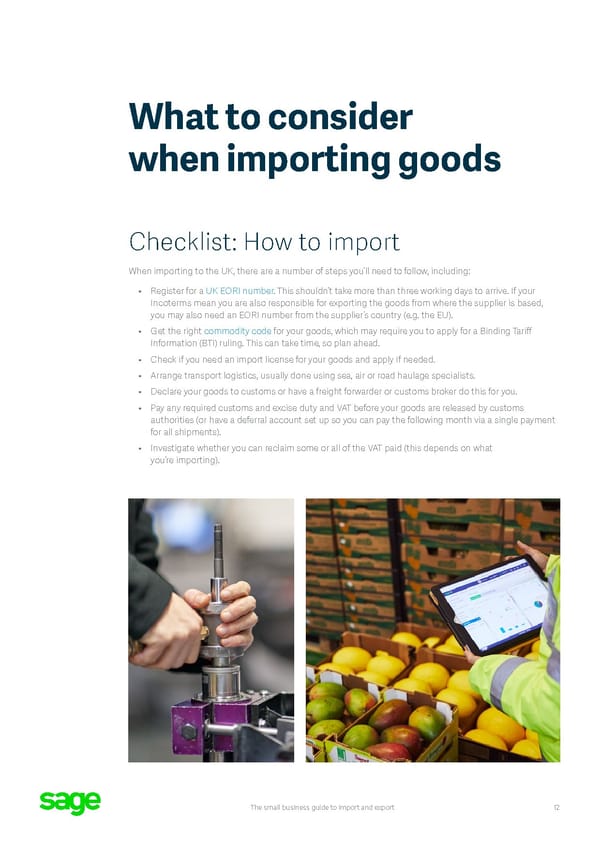What to consider when importing goods Checklist: How to import When importing to the UK, there are a number of steps you’ll need to follow, including: • Register for a UK EORI number. This shouldn’t take more than three working days to arrive. If your Incoterms mean you are also responsible for exporting the goods from where the supplier is based, you may also need an EORI number from the supplier’s country (e.g. the EU). • Get the right commodity code for your goods, which may require you to apply for a Binding Tariff Information (BTI) ruling. This can take time, so plan ahead. • Check if you need an import license for your goods and apply if needed. • Arrange transport logistics, usually done using sea, air or road haulage specialists. • Declare your goods to customs or have a freight forwarder or customs broker do this for you. • Pay any required customs and excise duty and VAT before your goods are released by customs authorities (or have a deferral account set up so you can pay the following month via a single payment for all shipments). • Investigate whether you can reclaim some or all of the VAT paid (this depends on what you’re importing). The small business guide to import and export 12
 Sage Small Business Guide: Import and Export Flipbook Page 11 Page 13
Sage Small Business Guide: Import and Export Flipbook Page 11 Page 13